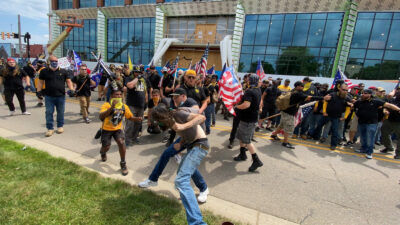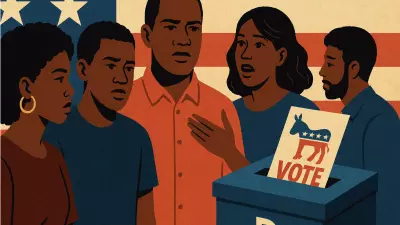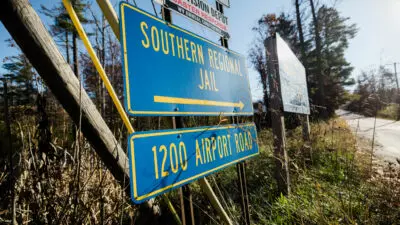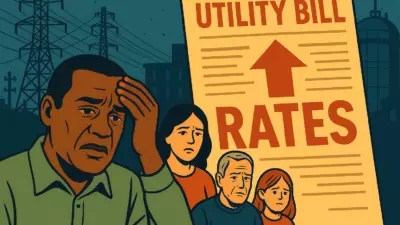I lived in Chicago for nearly a year before moving to Baghdad — which, I used to joke, prepared me well to cover Iraqi politics.

The blatant corruption, often without political consequences, was too similar — and persists to this day in both countries. The reward for being in charge without making changes or taking fundamental steps toward good governance: re-election.
In many ways, post-Saddam Hussein Iraq is as much a reflection of mainstream American policymaking as it is a collection of its consequences. But there’s another similarity: the rise of extremist militias and the government’s unwillingness to address the legitimate grievances of increasingly popular protests against its ultimate failings.
The seeds of violence sown in Iraq in the years after the U.S. invasion are growing to be the biggest legacy. Militias and paramilitaries ignored by, if not associated with, political parties, de facto — and by force — define which laws are enforced, and mete out verdicts and sentences on the spot.
Covering Iraq helped me understand the United States.
I was born and raised and now back living in Michigan, where on Oct. 8 a dozen white guys, all anti-government and at least some that have espoused anti-Black racism, were arrested on federal and state charges for allegedly trying to kidnap the governor and attack police.
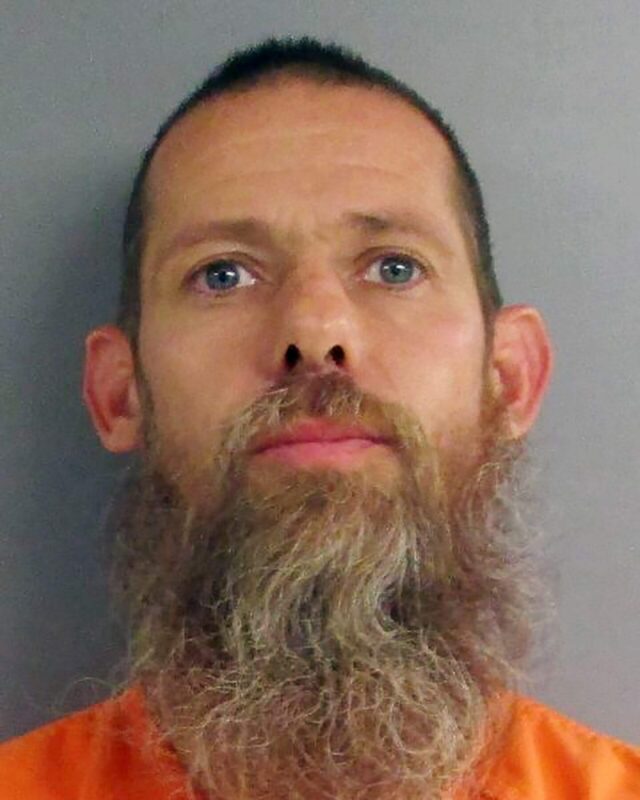
What was once lurking in America’s shadows — violence, in particular against Black life by tax-funded security forces, the power of white nationalists and other armed sectarian non-state actors, and the natural social consequences of unresolved legacies and manifestations of state-supported hate — has now found energy operating in more than a decade of light, starting with a gut reaction to the first Black president, and later galvanized by Donald Trump’s embrace of militias and vigilantism.
None of this is new, except the truth is now self-evident via mobile-phone cameras and rage in the streets.
Yet, white America is somehow caught flat-footed and struggling, coddling hatred with the hope it goes back into the shadows. White America cannot quite accept the claims that underlie the struggles and expressions for freedom as both unconditionally legitimate and the starting place to address those claims. To do so would require admitting fault, relinquishing power, and turning both verbal condemnation and application of the law against increasingly armed street gangs such as the Proud Boys.
I’m not talking about the deep South, but about the northern tip of the postindustrial United States.
Kalamazoo, Mich., is a 190-year-old microcosm of what’s good and bad in this country, the halfway point between Chicago and Detroit on Interstate 94, with scars of redlining and recession and empty factories covered up by the world’s best craft breweries and artisans, both old money and new generations of entrepreneurs. We’ve had our share of over-policing, racist actions by police against Black people, toothless oversight boards, and hot-air promises to do better.
In the days after George Floyd’s killing in Minneapolis, the fed-up and pissed-off began a series of rallies, street marches, and demands to change how blue lives are allowed to abuse Black lives.
How did the local government respond? It hyped up an online threat of property damage before a protest march, leading downtown Kalamazoo businesses to board up their windows, and then met protesters with aggressive, illogical policing, riot gear, even the Michigan National Guard, and tear gas. The local government’s focus was so intent on projecting power against Black people and their allies walking down a main thoroughfare that it was unprepared for the property damage it warned against.
Fast-forward two months, when more than 100 members of the “Western chauvinist” Proud Boys planned a rally and march on the same downtown. There were no warnings, no coordination with local activists and counter-protesters who were as public in their plans as the Proud Boys were secretive, no suggestions to board up buildings or impose protest zones to contain the crowds, no visible police presence to ensure swift enforcement of law and order.
Instead, there were street brawls, a successful racist march and rally, and 10 arrests — all counter-protesters except for two: a clearly identified legal observer and a Black journalist for a mainstream news outlet. Kalamazoo city officials said the journalist needed better identification; he had a clear and common press badge around his neck, a backpack with his media outlet’s emblem — and during his Facebook livestream, which ended when he was arrested, he clearly was telling the police that he was with the media.
The response from the city manager, mayor, and police chief: The police need to hold training for journalists on how to behave, the city needs to credential journalists, and a doubling down that the plan police created was the right plan regardless of critique.
They stuck to the plan, Kalamazoo city leaders kept saying in the aftermath of the Proud Boys debacle. They learned, they said, from the response to the Black Lives Matter protests, and instead of an aggressive, disproportionate and misplaced police presence, they “ghosted” on their community so as not to agitate the Proud Boys. When they did appear, they said, and escorted the Proud Boys out of the downtown, many with license plates intentionally obscured, they told the Kalamazoo residents who remained to get back in their place, and those who didn’t then suffered the consequences as prescribed by law.
(On Sept. 30, Kalamazoo’s police chief retired early, with praise from the mayor and city manager, replaced by one of her assistants – the one who ran point during the Proud Boys protest, and who again refused to allow that there were any mistakes made.)
What’s been overlooked in the aftermath, with the focus on arresting a journalist and a series of weak recommendations from the police themselves that admits no fault or exhibits any true self-reflection, is that the plan created for public safety during the Proud Boys rally was itself a product of the paternalistic and racist approach to policing that people are protesting in the first place.
In Iraq, when militias harass, threaten, or kill innocent people, political leaders feign just enough anger to appear to understand the gravity of the situation while not truly going after the militias, lest the militias’ political leadership turn on — or escalate violence against — the government.
In Kalamazoo, like much of the United States, political leaders and their appointed police chiefs just pretend the militias aren’t that much of a threat — at least not as much of a threat as Black people demanding the state stop abusing them.

